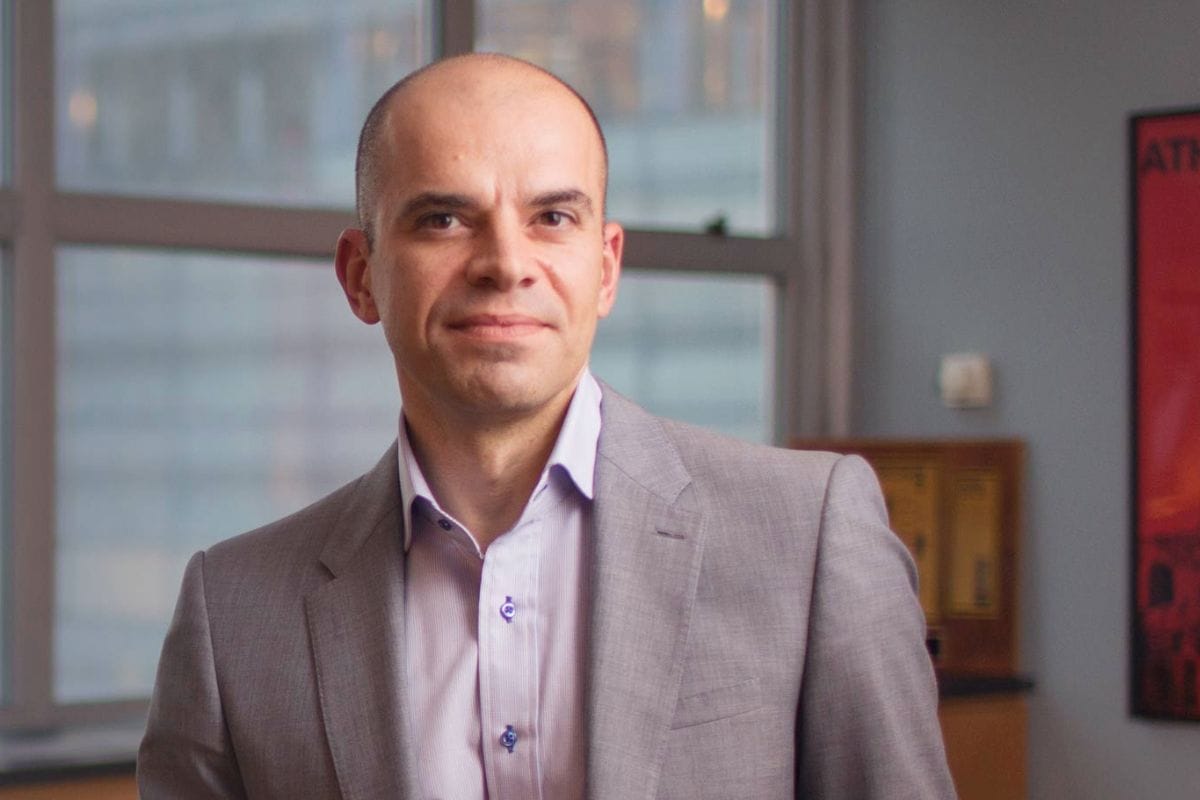
By exploring Notch, an evolutionarily imprinted signaling pathway, Iannis Aifantis, associate professor in the Department of Pathology at NYU School of Medicine, has advanced the understanding of the “balance between physiological stem cell differential and malignant transformation,” work that could lead to the development of new, less invasive and dangerous treatments for T-cell acute lymphoblastic leukemia (T-ALL), a deadly cancer that commonly strikes children.
Aifantis, who recently uncovered the passageway T cells travel to invade spinal fluid and the brain after they become malignant, is now testing potential drugs to block this entry point; he also hopes to learn what goes wrong in blood stem cells, causing them to become leukemic T cells. Going forward, Aifantis sees his research “gravitating toward the importance of ubiquitination [the ‘kiss of death’ for a protein],” which, he says, is targeted in several types of cancers.
Greek-born Aifantis credits his undergraduate studies as strongly influencing the future direction of his career in developmental immunology. After earning both his Bachelor of Science in biology and Master of Science in molecular biology and genetics from the University of Crete, he received a Marie Curie Fellowship and enrolled in the Necker Institute at University of Paris for his doctoral studies, under Dr. Harald von Boehmer. He later followed his mentor to the Dana Farber Cancer Institute at Harvard University as a postdoctoral fellow, and subsequently established his own laboratory in the Department of Medicine at the University of Chicago, before being recruited by NYU in 2006.
Awards and Accomplishments
- Marie Curie Fellowship
- Howard Hughes Medical Institute (HMMI) Early Career Scientist (2009)
- Irma T. Hirschl Career Scientist Award (2009)
- Leukemia and Lymphoma Scholar Award (2008)
- Dana Foundation Neuro-Immunology Award (2008)
- American Cancer Society Research Scholar Award (2007)
Jury Members
2010 Vilcek Prize for Creative Promise Honoree in Biomedical Science
Heran Darwin
Laurie Dempsey
Peter Palese
Jan Vilcek
Leslie Vosshall
Nicholas Wade
Jedd Wolchok
Tags
biomedical scienceRelated Prize Recipients
Rustem Ismagilov

Vamsi Mootha

Jin Zhang

You may also be interested in
Vilcek Foundation Awards $950,000 in Prizes to Immigrants and Scholars

Vilcek Foundation Awards $250,000 to Immigrants in Biomedical Science

Marianne Bronner: Advancing Stem Cell Research and Equity in Science
